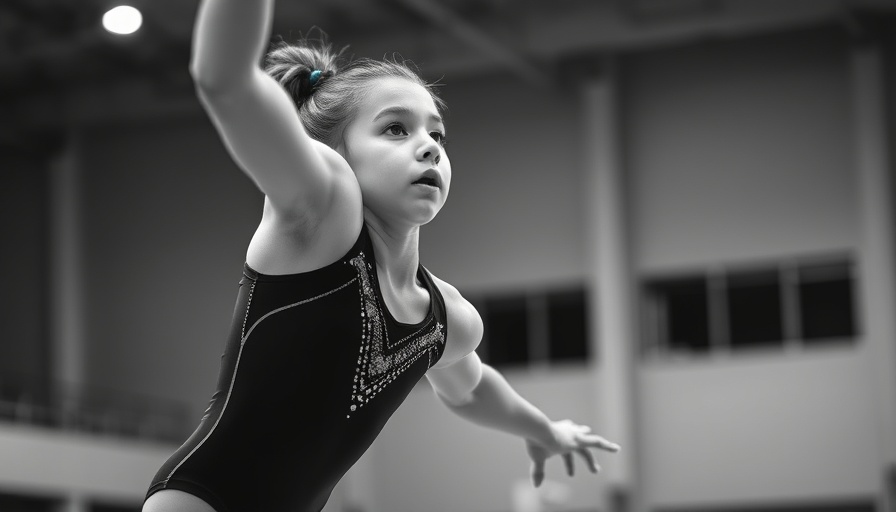
Understanding Emotional Maltreatment in Youth Sports
As we reflect on the experiences of athletes like Monica Vilhauer, it becomes clear that the concept of abuse extends far beyond what many of us might consider. In the competitive sports arena, particularly youth sports, maltreatment often lurks in the shadows of emotional neglect and authoritarian coaching practices. These harmful patterns can deeply affect the mental and emotional health of young athletes.
The Lingering Legacy of Authoritarian Coaching
Vilhauer's recounting of her experiences as a gymnast in the '80s and '90s reveals a coaching culture built on fear and obedience. This culture often champions the idea that the coach’s authority supersedes the well-being of the athlete, allowing for a spectrum of emotional abuse that remains largely unaddressed. According to the U.S. Center for SafeSport, a staggering 78% of athletes report encountering behavior related to emotional harm in their sports experiences today—indicating that this issue is not confined to the past but rather continues to pervade the atmosphere of competitive sports.
The Costs of Ignoring Emotional Abuse
The emotional scars from maltreatment can lead to debilitating mental health outcomes, including anxiety, depression, and low self-esteem. As Vilhauer points out, emotional abuse is often mistaken for rigorous training, which perpetuates a cycle of silence among athletes. The normalization of these abusive tactics reinforces harmful narratives that pit athletes against their own needs, creating a barrier to reaching out for help.
Parallel Example: The Sports Culture Shift
Interestingly, this phenomenon is not unique to gymnastics or even to 1980s and 1990s sports environments. In other sports and activities, similar trends of neglecting mental health for performance outcomes and the glorification of stringent coaching practices have been documented. Notably, recent discussions around professional sports teams have shed light on how emotional abuse impacts performance, illustrating the universal relevance of Vilhauer’s experiences.
Future Insights: Driving Change in Coaching Practices
The path toward improvement in youth sports necessitates a shift in coaching practices and training. To foster a healthier environment, coaches need to embrace a more nurturing approach that emphasizes emotional well-being alongside physical performance. Programs focusing on emotional intelligence, positive reinforcement, and open communication can help reshape how young athletes relate to their coaches and themselves in high-pressure settings.
Empowering Coaches and Parents to Identify Malpractice
Awareness is the first step toward change. Coaches and parents must understand that emotional abuse is not a hallmark of toughness; it represents a significant failure in the commitment to an athlete’s welfare. By educating themselves about the signs of maltreatment, they can work together to create a supportive culture that promotes healthy competition and personal growth.
A Call to Action: Supporting Healthy Sport Cultures
Now that we have established the severity of emotional maltreatment within youth sports, business executives and leaders in the sports community have a role to play. By advocating for regulatory standards that prioritize athlete welfare and mental health training for coaches, they can help create a future where every young athlete feels safe and valued. Initiatives aimed at reshaping the coaching culture must start with informed leaders who recognize the long-term implications of their decisions on the youth they mentor.
It is time for a fundamental reassessment of how we view training and coaching methodologies. Supporting healthy sport cultures is not just beneficial for athletes; it can ultimately revolutionize the way sports are perceived and practiced in our society.
 Add Row
Add Row  Add
Add 




Write A Comment